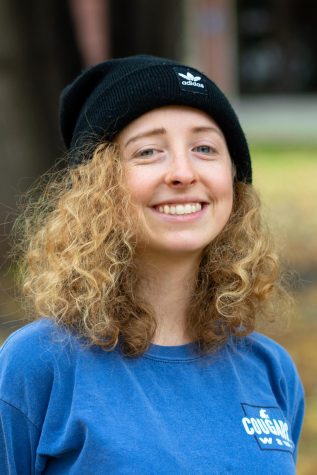Dedicated individuals preserve hope in their small town
Two Palouse residents create information hub for town, raise more than $4,100 for pandemic relief
LUKE HOLLISTER | DAILY EVERGREEN FILE
Sunsets from the Palouse on May 31, 2016.
April 27, 2020
Community members in Palouse, Wash. are preparing for future emergencies in their small town, as well as finding ways to keep residents connected amid isolating times.
Mary Welcome, a cultural worker and artist, said she began Palouse Hotline in early March shortly after she lost most of her work due to the coronavirus pandemic. She teamed up with another former Palouse City Council member Mike Milano, to build a hub where they could provide information and resources for those in Palouse.
“I just had a little bit more time to see what was happening in my own life and reflect that back on what was about to happen in the community,” Welcome said.
Welcome and Milano also created the group Palouse Community Service Corps, where they centralize local information during a time of crisis. This way people can access an aggregate of their town’s updates, Welcome said.
The two created a GoFundMe to fundraise money for Palouse residents who need aid during the pandemic. Milano said funding allocation is focused on food, shelter and other conditions of serious economic distress. They have raised $4,121 out of their $10,000 goal as of Tuesday.
Milano said they initially checked in with school food programs and food pantries to see if they were missing critical items or needed more resources. Milano and Welcome work closely with church, school and food bank leaders to reach as many people in the community as they can.
Milano said he also wanted to set up an opportunity for people to request assistance in order to address needs that cannot be seen.
“We’re having a difficult time getting a handle on [helping] those that aren’t communicating their needs,” he said. “We sure don’t want to have anyone at risk and going on without something that they could really, really use.”
Corey Laughary, Palouse Federated Church pastor, said community leaders are trying to figure out how to assist those who may not be used to asking for charitable or governmental aid.
“Financial repercussions are still coming … and are going to hit more,” he said. “Figuring out how to take care of that as a community [is essential].”
Laughary, who is also a mental health first aid and suicide intervention trainer, is addressing mental health needs through online meetings.
He said social isolation can be hard for people, so he is promoting ways they can connect to one another, such as through phone calls or other means of online communication.
“The hard part now is how do you check up on people … that you’re not seeing in your regular routine,” Laughary said.
People may not be able to participate in activities they used to before Washington’s Stay Home, Stay Healthy order, so they are creating ways to meet, he said. This includes virtual karaoke, bar hangouts or engaging people through local podcasts and YouTube videos.
Welcome said other communities are welcome to model their own ideas from what those in Palouse have done.
“Unity is a great way to solve problems and learn new things … you might not have known about before,” she said.











